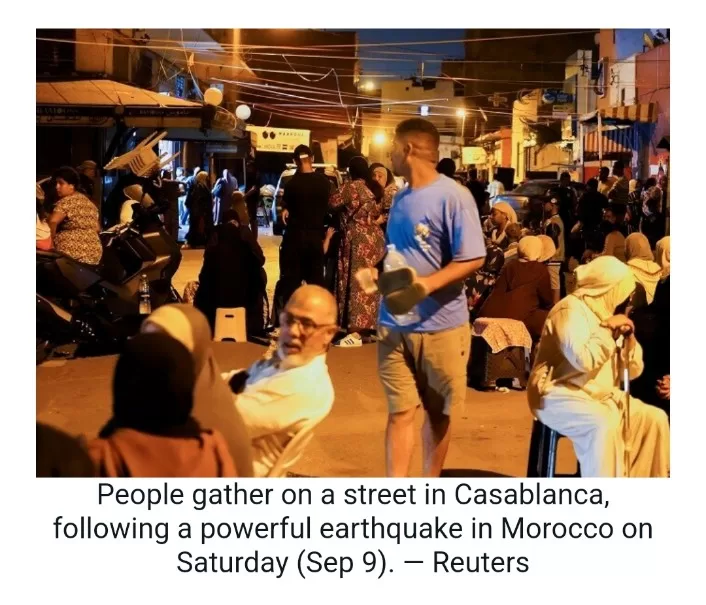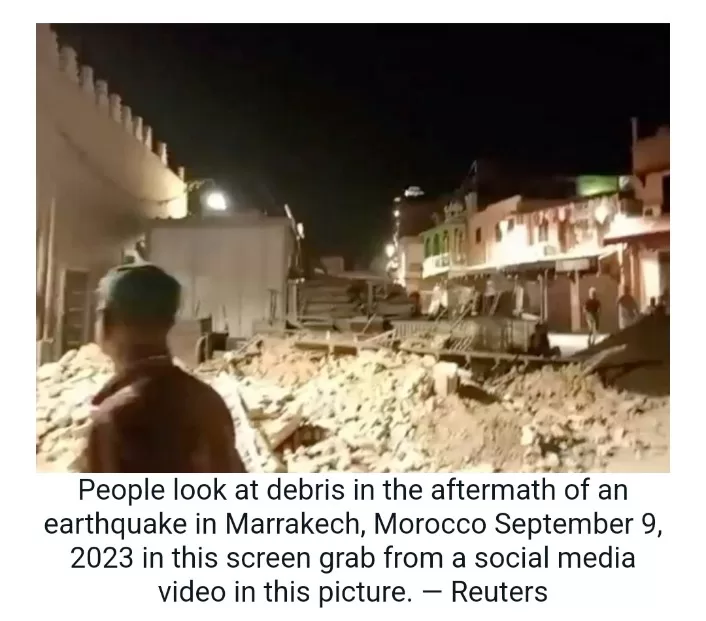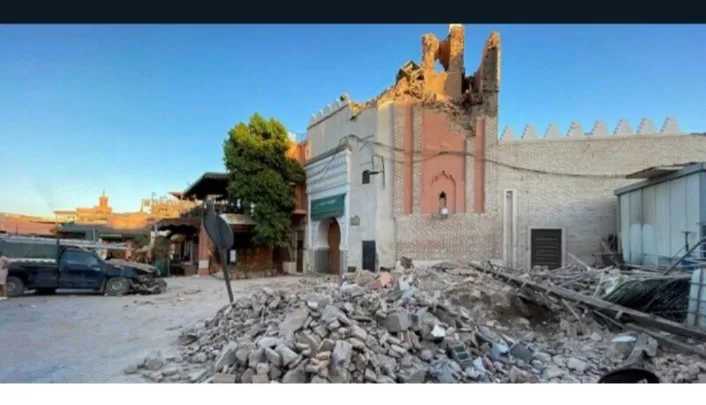In a grim turn of events, Morocco was shaken by a powerful earthquake on Friday, leaving in its wake a trail of destruction and human tragedy. The Ministry of the Interior has reported a staggering death toll of at least 632 individuals, with an additional 329 injured, 51 of whom are in critical condition.
The epicenter of this seismic catastrophe was situated 72 kilometers (45 miles) southwest of the beloved tourist destination, Marrakesh. The earthquake, measuring a formidable 6.8 magnitude, sent shockwaves not only across Marrakesh but also rippled through coastal cities, including Rabat, Casablanca, and Essaouira.

Witnesses recount the harrowing experience of feeling their surroundings convulsing beneath them. Abdelhak El Amrani, a resident of Marrakesh, described the scene as buildings trembled and residents rushed outdoors in a state of panic. Power outages and disrupted telephone networks only added to the chaos, compelling people to remain outside, united in their shared shock and apprehension.
As the hours unfolded, the true extent of the tragedy became apparent. An additional 153 individuals were reported injured. For some, it was a terrifying encounter with the Earth’s immense power, as they described the sensation akin to a train passing perilously close to their homes.

For Michael Bizet, a French national who owns traditional riad houses in Marrakesh’s old town, the earthquake was an awakening of sheer terror. As he fled his bed half-naked, he was confronted with scenes of chaos and devastation. Collapsed walls and piles of rubble littered the streets, a stark reminder of the devastation this natural disaster had wrought.
Video footage on social media documented the collapse of part of a minaret on Jemaa el-Fna square, an iconic location in the historic city. Desperation drove hundreds of people to seek refuge in the square, braving the night for fear of aftershocks. Some arrived with blankets, while others lay on the ground.
In the midst of this tragedy, residents shared their stories of survival and loss. Houda Outassaf, a local resident, described the overwhelming sensation of the ground trembling beneath him. Tragically, he disclosed that he had lost at least ten family members in the catastrophe, a somber reminder of the human toll exacted by the earthquake.
Fayssal Badour, another Marrakesh resident, recounted the heart-wrenching experience of being on the road when the earthquake struck. He was compelled to stop his vehicle as the magnitude of the disaster unfolded around him, with the cries and screams of those affected resonating in his ears.
In response to the disaster, the Ministry of the Interior has swiftly mobilized resources to provide aid to the affected areas. The regional blood transfusion center in Marrakesh has called for blood donations to support the injured.
Experts warn that the damage from this earthquake is likely to be significant, raising concerns about the widespread impact of this natural disaster. The USGS PAGER system, which assesses earthquake impacts, issued a red alert for economic losses, indicating that extensive damage is probable and that a national or international response may be necessary.
As Morocco grapples with the aftermath of this devastating earthquake, condolences have poured in from leaders around the world. Pakistan, Germany, India, Spain, and Russia have all expressed their sympathies and offered support to Morocco during this challenging time. In the face of this tragedy, the world stands united in solidarity with the people of Morocco, mourning the loss of lives and pledging assistance to aid the recovery efforts.
AFP/reuters






